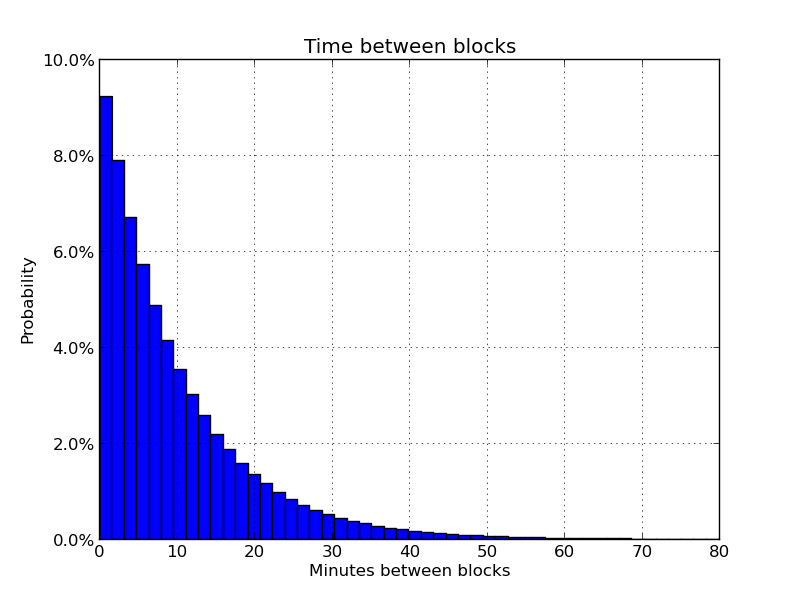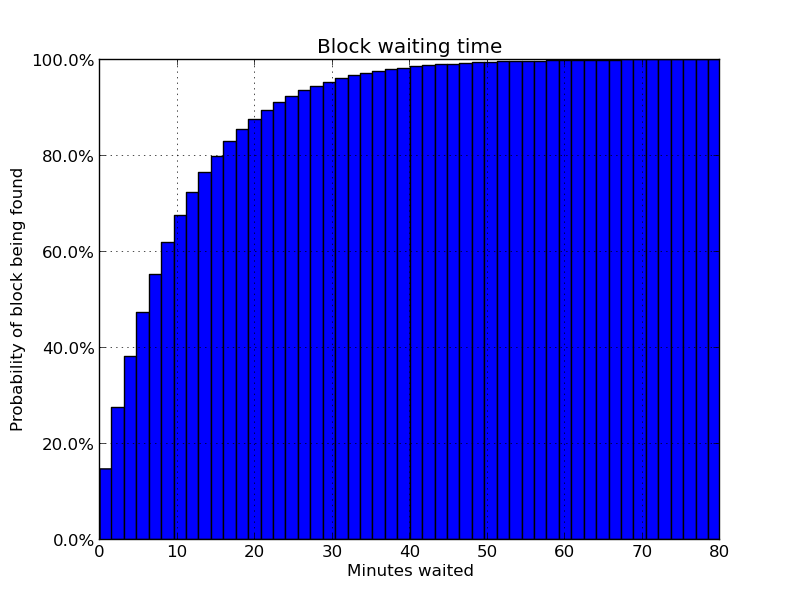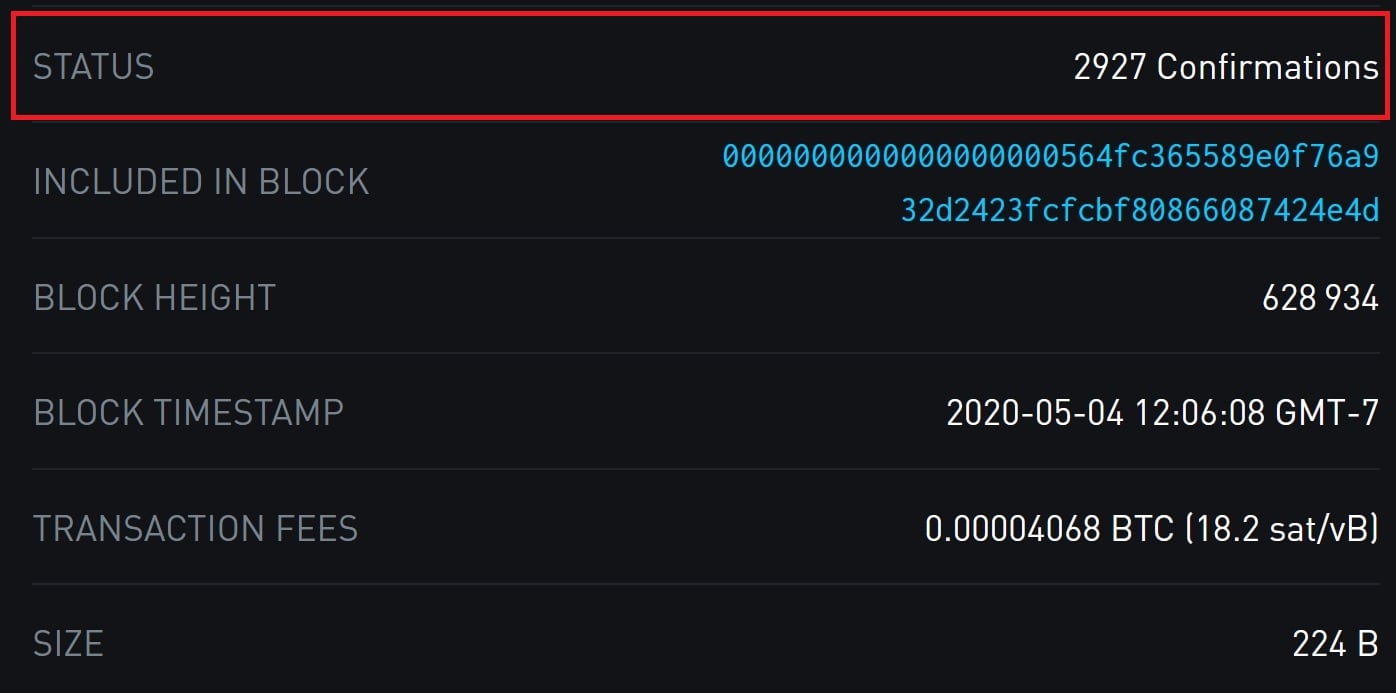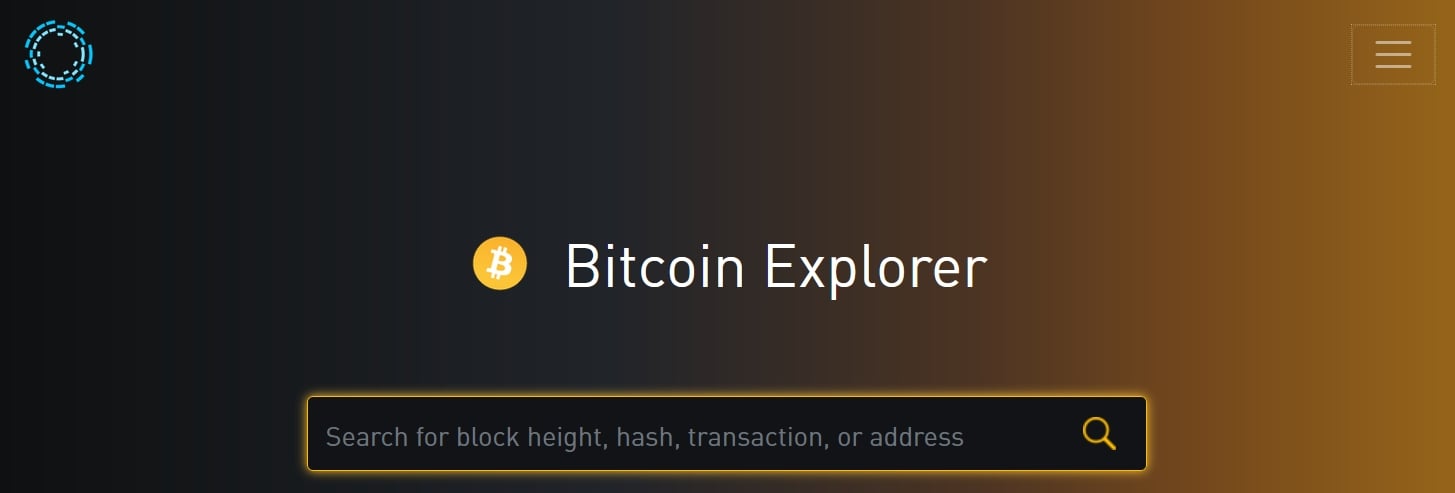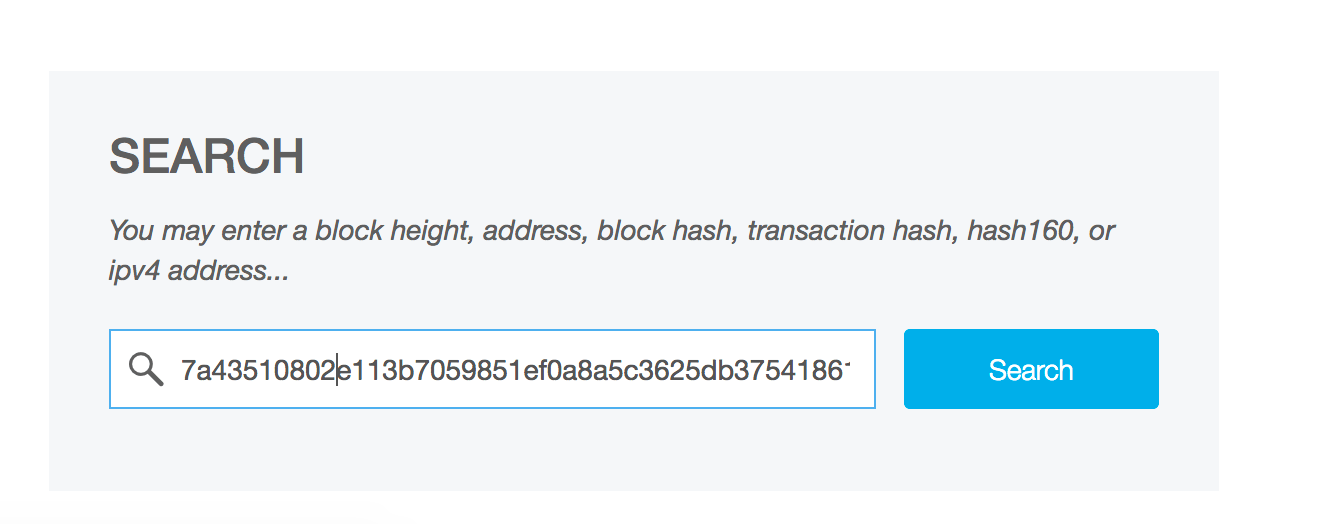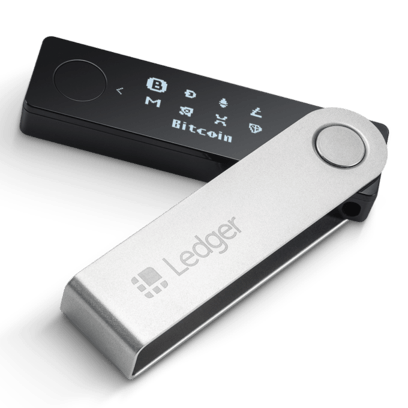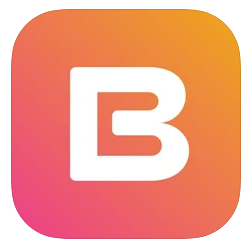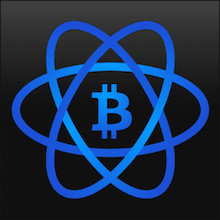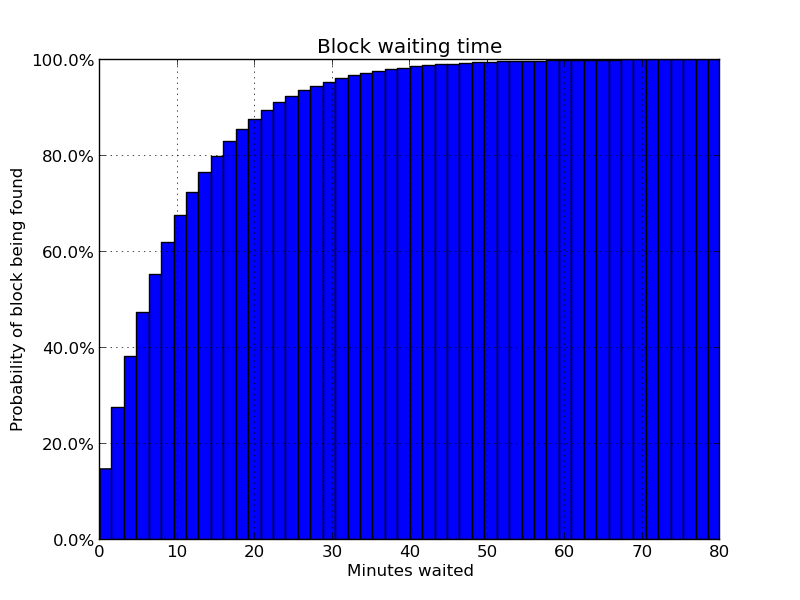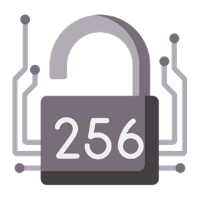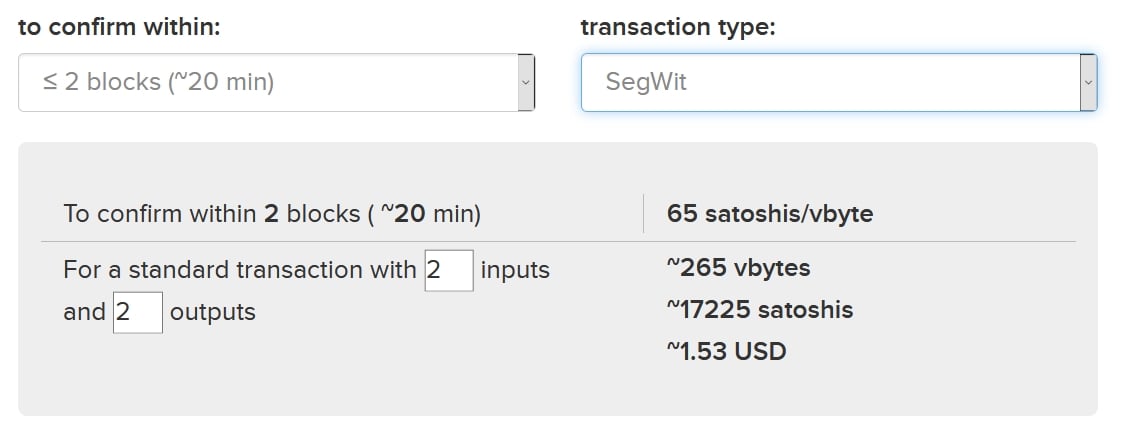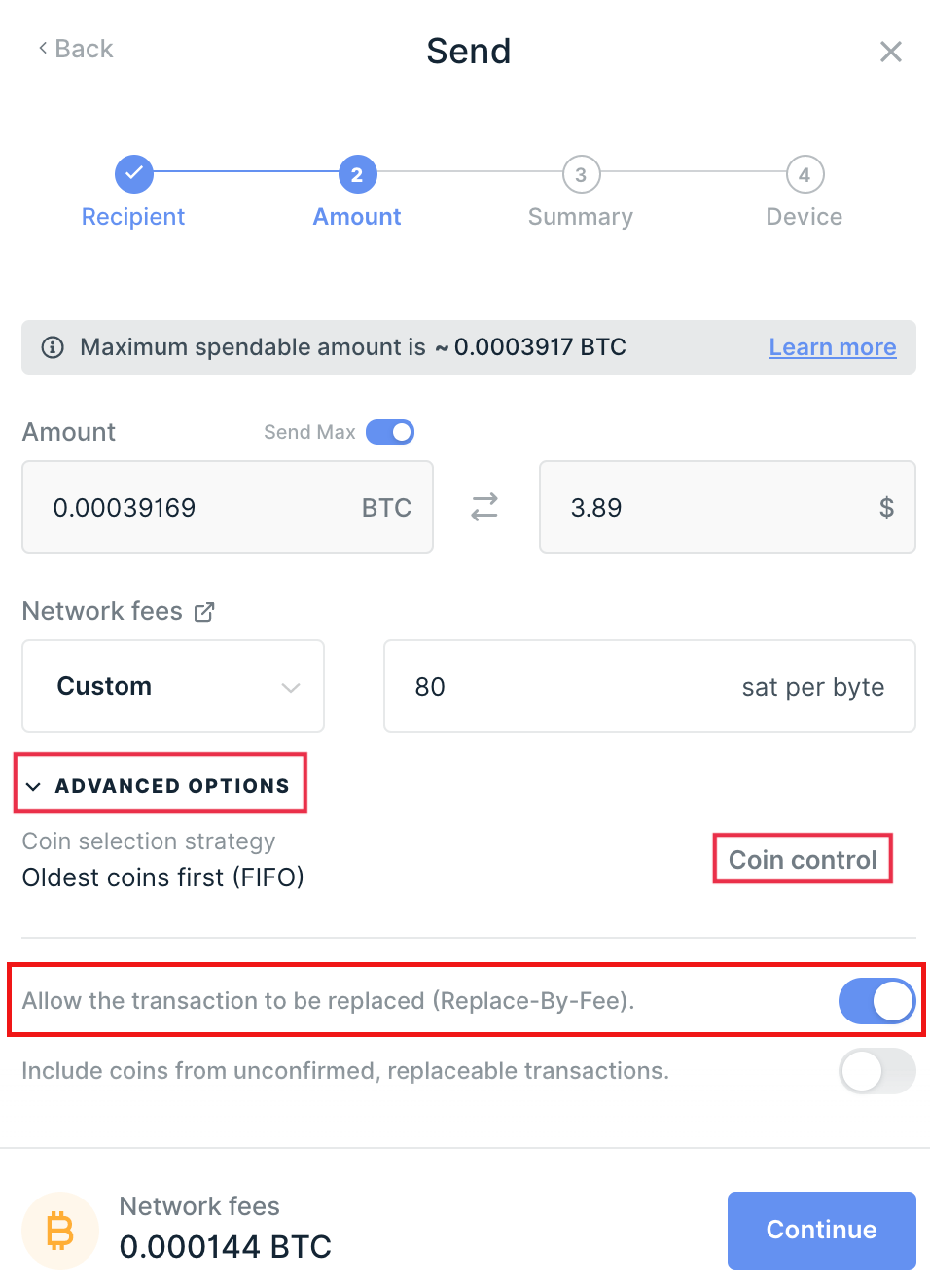- Confirmation
- Contents
- Number of Confirmations
- How Many Confirmations Is Enough
- How Long Does a Bitcoin Transaction Take?
- Table of Contents
- The Importance of Transaction Fees
- How Long Does a Transaction Confirmation Take?
- Will BTC Ever Be Faster?
- Bitcoin Confirmations
- How many Bitcoin Confirmations are Enough?
- How to Check Bitcoin Confirmations
- Try a New Wallet
- Ledger Nano X
- Electrum
- What is the Average Bitcoin Confirmation Time?
- Having an Issue With Your Wallet?
- Is your Bitcoin Transaction Unconfirmed for Hours?
- How Many Confirmations Does Coinbase Need?
- Is it possible for a transaction to confirm in less than 10 minutes?
- Difficulty Improperly Adjusted
- Hashing Power Flood
- Miner Luck
- Your Luck
- How can I speed up confirmation times?
- Does Segwit decrease confirmation times?
- My transaction is stuck. How do I get it onto a block?
- Learn More
- Buy Bitcoin with Credit Card
- Get a Free Bitcoin Wallet
- What is Bitcoin Mining?
- About the Author: Jordan Tuwiner
Confirmation
After a transaction is broadcast to the Bitcoin network, it may be included in a block that is published to the network. When that happens it is said that the transaction has been mined at a depth of 1 block. With each subsequent block that is found, the number of blocks deep is increased by one. To be secure against double spending, a transaction should not be considered as confirmed until it is a certain number of blocks deep.
Note that unconfirmed transactions do not expire.
Contents
Number of Confirmations
The classic bitcoin client will show a transaction as «n/unconfirmed» until the transaction is 6 blocks deep. Merchants and exchanges who accept bitcoins as payment can and should set their own threshold as to how many blocks are required until funds are considered confirmed. When potential loss due to double spending as nominal, as with very inexpensive or non-fungible items, people may choose not to wait for a transaction to be confirmed, and complete the exchange as soon as it is seen on the network. Most exchanges and other merchants who bear the risk from double spending require 6 or more blocks.
There is nothing special about the default, often-cited figure of 6 blocks. It was chosen based on the assumption that an attacker is unlikely to amass more than 10% of the hashrate, and that a negligible risk of less than 0.1% is acceptable. Both these figures are arbitrary, however; 6 blocks are overkill for casual attackers, and at the same time powerless against more dedicated attackers with much more than 10% hashrate. [1]
Freshly-mined coins cannot be spent for 100 blocks. It is advisable to wait some additional time for a better chance that the transaction will be propagated by all nodes. Some older bitcoin clients won’t show generated coins as confirmed until they are 120 blocks deep.
How Many Confirmations Is Enough
Transactions with 0/unconfirmed can be reversed with not too much cost via Finney attack and race attack, but in some cases may still be acceptable especially for low-value goods and services, or ones which can be clawed back.
For transactions with confirmations, the website (https://people.xiph.org/
greg/attack_success.html) can be used to calculate the probability of a successful doublespend given a hashrate proportion and number of confirmations. Note that in the reality of bitcoin mining today, more than 6 confirmations are required. (60 confirmations to have Confirmation Times
Each additional confirmation is a new block being found and added to the end of the blockchain.
Miners create blocks by solving the proof of work for their proposed block. The block interval has an average of 10 minutes but not every block interval is exactly 10 minutes. It follows a statistical process known as a poisson process, where random events happen with the same probability in each time interval. Another way of expressing this is that the mining process has no memory, at every second a block has the same chance of being found. Poisson processes are well-understood but can be unintuative.
There are lots of block intervals with a time less than 10 minutes but then a few block intervals much longer which bump up the average to 10 minutes. So the bitcoin network can get unlucky and a block won’t be found for a whole hour.
In a 10 minute interval, the probability of a block being found is about 63% (or 1 — e^(-1)). So approximately two-thirds of the time a block will be found in 10 minutes or less. In 30 minutes a block has a 95% chance of being found, which rises to 99.7% if the time interval is 60 minutes.
Источник
How Long Does a Bitcoin Transaction Take?
On the Bitcoin network, the average confirmation time for a BTC payment is about 10 minutes. However, transaction times can vary wildly — and here, we’re going to explain why.
Table of Contents
Ahhh blockchain. It’s the future of money, you know. But even though cash sent through old-fashioned banks often hit accounts instantly, a Bitcoin transaction can take a *little bit* longer.
On the Bitcoin network, the average confirmation time for a BTC payment is about 10 minutes. However, transaction times can vary wildly — and here, we’re going to explain why.
The Importance of Transaction Fees
Did you know that you could end up waiting days before a transaction on the Bitcoin blockchain is completed?
In some ways, using a cryptocurrency is like driving down a freeway. A high number of transactions means there’s going to be a lot of congestion, slowing everything down.В
Paying bigger Bitcoin transaction fees is a surefire way to jump to the front of the queue and cut wait times. It’s the equivalent of passing through traffic with a police escort.В
When you are sending Bitcoin, you need to incentivize miners on the blockchain to include your transaction in the next block — especially when the mempool is full. Given how block sizes are fixed at 1MB and there’s a limited number of miners, you may end up having to pay a much higher fee to get first-class treatment.
How Long Does a Transaction Confirmation Take?
A Bitcoin transaction often goes through several confirmations on the blockchain before it is fully cleared. That’s because there’s a risk that unconfirmed transactions could be reversed, or the cryptocurrency could be spent twice. A confirmation takes place whenever a new block is created.
If you’re transferring a big amount of cryptocurrency to a company, some will require as many as six confirmations. How long would this transaction for the transfer take to confirm? About an hour.
Remember, each time you send a transaction, you are making a transfer (or transfers) and you need to wait until the transfer is “confirmed” by the miners.
There are some great tools out there which can give you an estimate of the average time it’ll take to complete a BTC transaction or transfer, like Blockchain.com and Statista. You can also get guidance on the transaction fees you should add — often denoted in the form of satoshis (there are 100,000,000 satoshis in one Bitcoin).
If you submit a Bitcoin transaction with lower fees, you have a real risk of upsetting Bitcoin miners. They’ll throw a tantrum (or, in reality, will just ignore your lower transaction fees in favor of higher ones) and it’s possible your payment will end up languishing in a long list of unconfirmed transactions. However, you shouldn’t worry too much, as it will get processed whenever there’s a massive lull on the Bitcoin blockchain and miners have nothing else to do.
Will BTC Ever Be Faster?
The long confirmation time associated with a Bitcoin transaction or transfer gives some BTC enthusiasts sleepless nights. They worry the blockchain won’t be able to cope with demand in years to come. (Fun fact: this was one of the main reasons why Bitcoin Cash was created).
Projects such as the Lightning Network aim to solve this problem by adding another layer on top of the Bitcoin blockchain to speed things up. That said, it hasn’t really witnessed a huge explosion in popularity.
Another alternative to Bitcoin fees is to use a different cryptocurrency, such as Ethereum or Litecoin, that are known for faster transactions, aka faster confirmations after transfers. It’s fairly easy to transfer Bitcoins to other digital assets on an exchange. CoinMarketCap has a ranking page where you can see different exchanges’ regulation, accepted payment methods and more for those just getting into buying crypto.
We hope you’ve enjoyed our FAQ about how long a Bitcoin transaction takes to be confirmed. By following our advice, you’ll be out of the Bitcoin mempool in no time.
Источник
Bitcoin Confirmations
Roughly every ten minutes, a new block is created and added to the blockchain through the mining process. This block verifies and records any new transactions. The transactions are then said to have been confirmed by the Bitcoin network.
For example, if Sean buys bitcoin and then sends one bitcoin to John, this transaction will remain “unconfirmed” until the next block is created.
Once that block is created and the new transaction is verified and included in that block, the transaction will have one confirmation. Approximately every ten minutes thereafter, a new block is created and the transaction is reconfirmed by the Bitcoin network.
While some services are instant or only require one confirmation, many Bitcoin companies will require more as each confirmation greatly decreases the likelihood of a payment being reversed. It is common for six confirmations to be required which takes about an hour.
How many Bitcoin Confirmations are Enough?
How to Check Bitcoin Confirmations
Once you make a transaction, your wallet should give you an option to view the transaction on a block explorer or give you the transaction ID.
A transaction ID looks like this: 7a43510802e113b7059851ef0a8a5c3625db37541861dd982f56253b2d5c4ff9
To check the number of confirmations for a transaction, paste the ID into a block explorer like blockchain.info:
Press enter and then you’ll see more details about your transaction:
Try a New Wallet
If your wallet is sending transactions that get stuck, you may be using an old wallet that doesn’t calculate fees properly. Try one of these:
Ledger Nano X
- Good for storing large amounts of crypto
- Supports 1,000+ coins
- Can be used with iOS & Android
- Great wallet for iOS and Android
- Supports many coins, like BTC and ETH
- Clean interface makes it easy to use
Electrum
- Desktop wallet that works for Mac, Windows and Linux
- Simple to use, but also offers power features for experienced users
- Can connect to hardware wallets
What is the Average Bitcoin Confirmation Time?
There is a greater than 60% chance your transaction will be confirmed within 10 minutes if you pay a high enough fee:
Having an Issue With Your Wallet?
Some wallets are not updated to send transactions with the proper fee.
Our guide on the best bitcoin wallets features wallets with good fee estimators. Read it here!
Is your Bitcoin Transaction Unconfirmed for Hours?
If your transaction is unconfirmed for hours, just wait. If more than 72 hours pass and your transaction still isn’t confirmed, you can re-send the transaction.
We recommend using Electrum wallet with a hardware wallet like the Ledger Nano X, since it allows you to raise the fee on transactions if they get stuck.
How Many Confirmations Does Coinbase Need?
Coinbase requires three confirmations before a transaction will show up and be spendable in your Coinbase account.
Is it possible for a transaction to confirm in less than 10 minutes?
Yes! There are several ways this could happen.
As mentioned above, block times are targeted to be 10 minutes. However, sometimes they are more and sometimes they are less.
Difficulty Improperly Adjusted
If the difficulty is set too low, then block times will tend to be shorter than 10 minutes. Difficulty is adjusted every 2 weeks, but the way it is adjusted is based on the previous two weeks average block times. This generally does a good job of ensuring 10 minute blocks, but it is not perfect.
Hashing Power Flood
If a lot of mining hashing power is suddenly added to the network quickly, then this hashing power wont be accounted for until the next difficulty adjustment, resulting in faster block times on average.
Miner Luck
Sometimes blocks are found in minutes simply because of luck. The truth is, mining bitcoin is about guessing the answers to complex math problems. Guessing the answer should, statistically speaking, take about 10 minutes. However, sometimes you get lucky and find it much sooner.
Your Luck
Assuming 10 minute block timers are perfectly calibrated, and none of the above occurs, you could still get your first confirmation in less than 10 minutes. Let’s say a block is found and five minutes later you broadcast a transaction with a higher fee than anyone else on the network. If that were the case, you would get your first confirmation in 5 minutes.
How can I speed up confirmation times?
There is no way for you to speed up the rate at which blocks are added to the blockchain. However, you can speed up the likelihood your transaction is included in the next block by increasing the fees you pay for the transaction, which makes it of higher interest to miners.
You can find what is considered a high fee at any given time by looking at our fee calculator. Be sure to calculate taxes for free properly.
Does Segwit decrease confirmation times?
Technically, no. Segwit does not change the amount of time needed for blocks to confirm. However, transactions using Segwit are cheaper because they are smaller. That means the fees you would pay for an old bitcoin transaction sending the same amount of coins is higher than it would be with Segwit. You can, therefore, put the money you save into paying more fees to increase the chance the transaction ends up in the next block.
However, no amount of fees can get your transaction through faster than the next block. And the time it takes for the next block to be found varies depending on current hashing power, difficulty and new investors coming in.
My transaction is stuck. How do I get it onto a block?
There are a few ways to fix a stuck transaction. One way is to do a replace by fee (RBF) transaction. The other is to do a child-pays-for-parent (CPFP) transaction. You can also use a bitcoin accelerator service, but accelerators are very expensive (and also not based in the US, UK or Canada). Better, cheaper options are available.
If you own a Ledger hardware wallet and you are using Ledger Live (supports altcoins too), you can prepare your transaction so that replace by fee is possible. Just tick the switch in the advanced options on the second screen (amount) when you make your transaction:
Learn More
Buy Bitcoin with Credit Card
Get a Free Bitcoin Wallet
What is Bitcoin Mining?
About the Author: Jordan Tuwiner
Jordan Tuwiner is the founder of BuyBitcoinWorldwide.com. His work has been featured in The Guardian, International Business Times, Forbes, VentureBeat, CoinDesk and many other top Bitcoin media outlets. His articles are read by millions of people each year looking for the best way to buy Bitcoin and crypto in their country.
He has also written extensively about the history, technology, and business of the crypto world. Jordan is also the creator of some of the internet’s most famous Bitcoin pages, including The Quotable Satoshi and Bitcoin Obituaries.
To learn more about Jordan, see his full bio.
We Help The World Buy Bitcoin
Disclaimer: Buy Bitcoin Worldwide is not offering, promoting, or encouraging the purchase, sale, or trade of any security or commodity. Buy Bitcoin Worldwide is for educational purposes only. Every visitor to Buy Bitcoin Worldwide should consult a professional financial advisor before engaging in such practices. Buy Bitcoin Worldwide, nor any of its owners, employees or agents, are licensed broker-dealers, investment advisers, or hold any relevant distinction or title with respect to investing. Buy Bitcoin Worldwide does not promote, facilitate or engage in futures, options contracts or any other form of derivatives trading.
Buy Bitcoin Worldwide does not offer legal advice. Any such advice should be sought independently of visiting Buy Bitcoin Worldwide. Only a legal professional can offer legal advice and Buy Bitcoin Worldwide offers no such advice with respect to the contents of its website.
Buy Bitcoin Worldwide receives compensation with respect to its referrals for out-bound crypto exchanges and crypto wallet websites.
Wallabit Media LLC and/or its owner/writers own Bitcoin.
Источник
